31 oct 2019
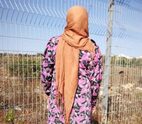
Israeli soldiers prevented dozens of Palestinians from entering their orchards to pick their olive trees, isolated behind the illegal Annexation Wall, near Ariel colony, which was built on Palestinian lands in Salfit, in central West Bank.
Media sources said the soldiers prevented the Palestinians from entering their orchards from six until nine in the morning.
They added that the soldiers were supposed to open the gate of the illegal Wall, separating them from their lands, at 5:45 in the morning, but they refused without providing any reason.
Earlier on Wednesday at night, the soldiers kept the Palestinians locked in their orchards for more than three hours, after the army claimed the officers did not have the keys for the gates.
Media sources said the soldiers prevented the Palestinians from entering their orchards from six until nine in the morning.
They added that the soldiers were supposed to open the gate of the illegal Wall, separating them from their lands, at 5:45 in the morning, but they refused without providing any reason.
Earlier on Wednesday at night, the soldiers kept the Palestinians locked in their orchards for more than three hours, after the army claimed the officers did not have the keys for the gates.
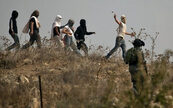
Illegal Israeli settlers attacked Palestinian farmers Wednesday, throwing rocks, and injuring at least three harvesters.
In the town of Huwwara, south of the northern West Bank city of Nablus, Ghassan Daghlas, a local monitor of settler violence, told WAFA that a group of colonists from the illegal Yitzhar settlement, threw rocks at farmers as they picked their olive harvest, injuring three of them.
Two of the injured were identified as Mayor of Huwwara Nasser al-Huwwari, and Deputy mayor Kamal Odeh.
At the same time, another group of settlers stole the olive harvest of Palestinian farmers near the village of Deir al-Hatab, to the east of Nablus city.
Daghlas confirmed that a number of Palestinian farmers entered their olive groves in the area of Ras Hazem, near the illegal settlement of Alon Moreh, but the Israeli settlers had stolen their harvest and destroyed some of the olive trees.
He condemned the settlers’ attacks against olive harvesters, which often occurs under the watch of Israeli soldiers, a policy in place not just to discourage Palestinians from tending to their farmlands, but to effectively force them to leave the area and give up on their land.
Over the past four weeks, the West Bank has witnessed an increase in the number of settler attacks, as Palestinian farmers began the year’s olive harvest.
Attacks were mainly in the vicinity of the illegal Israeli settlements in the West Bank districts of Nablus, Salfit and Bethlehem.
The most devastating attack occurred on the morning of 16 October when more than 30 masked armed settlers charged at Palestinian farmers and international volunteers in Burin, attacking three internationals and seriously injuring one, including 80-year-old Rabbi Moshe Yehuda from the Rabbis for Human Rights organization.
Palestinians look forward to the annual olive harvest season, which is a major income source for thousands of Palestinian families in the West Bank.
In addition to stealing olive harvest from farmers, many areas planted with olive trees are closed to farmers due to their proximity to Jewish settlements or fall behind the Israeli apartheid wall.
Extremist Israeli settlers’ violence against Palestinians and their property is routine in the West Bank, with over 600,000 colonists live in Jewish-only settlements across occupied West Bank in violation of international law.
In the town of Huwwara, south of the northern West Bank city of Nablus, Ghassan Daghlas, a local monitor of settler violence, told WAFA that a group of colonists from the illegal Yitzhar settlement, threw rocks at farmers as they picked their olive harvest, injuring three of them.
Two of the injured were identified as Mayor of Huwwara Nasser al-Huwwari, and Deputy mayor Kamal Odeh.
At the same time, another group of settlers stole the olive harvest of Palestinian farmers near the village of Deir al-Hatab, to the east of Nablus city.
Daghlas confirmed that a number of Palestinian farmers entered their olive groves in the area of Ras Hazem, near the illegal settlement of Alon Moreh, but the Israeli settlers had stolen their harvest and destroyed some of the olive trees.
He condemned the settlers’ attacks against olive harvesters, which often occurs under the watch of Israeli soldiers, a policy in place not just to discourage Palestinians from tending to their farmlands, but to effectively force them to leave the area and give up on their land.
Over the past four weeks, the West Bank has witnessed an increase in the number of settler attacks, as Palestinian farmers began the year’s olive harvest.
Attacks were mainly in the vicinity of the illegal Israeli settlements in the West Bank districts of Nablus, Salfit and Bethlehem.
The most devastating attack occurred on the morning of 16 October when more than 30 masked armed settlers charged at Palestinian farmers and international volunteers in Burin, attacking three internationals and seriously injuring one, including 80-year-old Rabbi Moshe Yehuda from the Rabbis for Human Rights organization.
Palestinians look forward to the annual olive harvest season, which is a major income source for thousands of Palestinian families in the West Bank.
In addition to stealing olive harvest from farmers, many areas planted with olive trees are closed to farmers due to their proximity to Jewish settlements or fall behind the Israeli apartheid wall.
Extremist Israeli settlers’ violence against Palestinians and their property is routine in the West Bank, with over 600,000 colonists live in Jewish-only settlements across occupied West Bank in violation of international law.
30 oct 2019
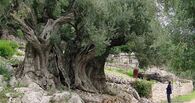
Israeli settlers on Wednesday stormed Palestinian groves and stole olives in Deir al-Hatab village east of Nablus City.
Anti-settlement activist Ghassan Daghlas said that the Palestinian farmers of Deir al-Hatab told him Israeli settlers destroyed dozens of olive trees and stole their crops.
He noted that settler attacks on the Palestinian citizens and their farmlands in the West Bank have been stepped up during the olive season.
Anti-settlement activist Ghassan Daghlas said that the Palestinian farmers of Deir al-Hatab told him Israeli settlers destroyed dozens of olive trees and stole their crops.
He noted that settler attacks on the Palestinian citizens and their farmlands in the West Bank have been stepped up during the olive season.
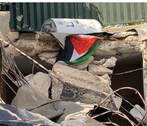
Israeli soldiers and police officers demolished, Tuesday, a Palestinian home, along with commercial structures, and barns, in occupied East Jerusalem.
The Wadi Hilweh Information Center in Silwan (Silwanic) said dozens of soldiers, and officers, invaded the Suwwana neighborhood in Jerusalem, and surrounding a home, owned by Khaled al-Fahham. video
Silwanic added that the soldiers proceeded to demolish the property, although the Palestinian managed to obtain a court order delaying the destruction of his property for one week, as his appeal case is still unresolved.
The family stated that the City Council in occupied Jerusalem issued a demolition order against their property nearly 18 months ago, after alleging that it was built without a permit.
The family denied the Israeli allegation, and said that their home was built in 1964, before Israel occupied East Jerusalem in 1967, and that they own all needed permits and documents, however, the Central Court recently decided that the property must be demolished by October 27th.
“We then headed to the High Court and managed to obtain a ruling delaying the demolition for one week,” the family added, “Our appeal was approved, but the City Council went ahead and demolished our home anyway.”
It is worth mentioning that six family members, including three children, lived in the demolished property.
The soldiers also invaded the al-‘Isawiya town, in Jerusalem, and forced one Palestinian, identified as Luay Obeid, to demolish his under-construction home, after threatening excessively high fines and fees.
In addition, the soldiers demolished a stable for horses, a metal shed, and the foundation of a building, owned by Ishaq Hamdan. video
A commercial structure owned by Luay Mansour was also demolished in the town. The building contained an office for a car rental service and a carwash facility.
The Wadi Hilweh Information Center in Silwan (Silwanic) said dozens of soldiers, and officers, invaded the Suwwana neighborhood in Jerusalem, and surrounding a home, owned by Khaled al-Fahham. video
Silwanic added that the soldiers proceeded to demolish the property, although the Palestinian managed to obtain a court order delaying the destruction of his property for one week, as his appeal case is still unresolved.
The family stated that the City Council in occupied Jerusalem issued a demolition order against their property nearly 18 months ago, after alleging that it was built without a permit.
The family denied the Israeli allegation, and said that their home was built in 1964, before Israel occupied East Jerusalem in 1967, and that they own all needed permits and documents, however, the Central Court recently decided that the property must be demolished by October 27th.
“We then headed to the High Court and managed to obtain a ruling delaying the demolition for one week,” the family added, “Our appeal was approved, but the City Council went ahead and demolished our home anyway.”
It is worth mentioning that six family members, including three children, lived in the demolished property.
The soldiers also invaded the al-‘Isawiya town, in Jerusalem, and forced one Palestinian, identified as Luay Obeid, to demolish his under-construction home, after threatening excessively high fines and fees.
In addition, the soldiers demolished a stable for horses, a metal shed, and the foundation of a building, owned by Ishaq Hamdan. video
A commercial structure owned by Luay Mansour was also demolished in the town. The building contained an office for a car rental service and a carwash facility.
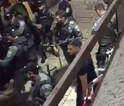
Israeli soldiers abducted, late on Tuesday evening, eight Palestinians, including one child, in the al-‘Isawiya town, and one in Silwan, in occupied East Jerusalem.
The Wadi Hilweh Information Center in Silwan (Silwanic) said the soldiers assaulted in al-Isawiya several young men with batons and pepper-spray, causing various cuts and bruises.
Silwanic added that the soldiers also invaded and ransacked many stores, causing damage, before forcing many shops to close, and abducted the owners.
It stated that the soldiers abducted Moath al-Ajlouni, Morad al-Ajlouni, Ahmad Asfour, Saed Abu Sneina, ‘Abboud Abu Sneina, Mahmoud Abu Sneina and Hazem al-Qassas.
All the abducted Palestinians were as assaulted by the soldiers and suffered cuts and bruises.
In addition, the soldiers abducted a child, identified as Abdullah Da’na 15, while standing in front his home in al-‘Isawiya. video
Furthermore, a young man, identified as Ahmad Ala Sweidan, 20, was abducted from his home in Silwan.
In addition, the Israeli police released one of the civilian guards of the al-Aqsa Mosque, who was abducted earlier in the day.
The guard, Ehab Abu Ghazala, was taken prisoner for filming large groups of soldiers and colonialist settlers who stormed the courtyards of the holy site and conducted provocative tours in Bab ar-Rahma Mosque in Al-Aqsa Compound.
In related news, the army issued orders preventing Ramzi Obeisan from entering the Al-Aqsa Mosque for two weeks, after summoning him for interrogation, Monday.
The Palestinian was initially abducted on the first day of Al-Adha Muslim feast this past August, after the police assaulted him, causing fractures in his foot, when they accompanied dozens of illegal colonists in a provocative tour into the holy site’s compound.
The Wadi Hilweh Information Center in Silwan (Silwanic) said the soldiers assaulted in al-Isawiya several young men with batons and pepper-spray, causing various cuts and bruises.
Silwanic added that the soldiers also invaded and ransacked many stores, causing damage, before forcing many shops to close, and abducted the owners.
It stated that the soldiers abducted Moath al-Ajlouni, Morad al-Ajlouni, Ahmad Asfour, Saed Abu Sneina, ‘Abboud Abu Sneina, Mahmoud Abu Sneina and Hazem al-Qassas.
All the abducted Palestinians were as assaulted by the soldiers and suffered cuts and bruises.
In addition, the soldiers abducted a child, identified as Abdullah Da’na 15, while standing in front his home in al-‘Isawiya. video
Furthermore, a young man, identified as Ahmad Ala Sweidan, 20, was abducted from his home in Silwan.
In addition, the Israeli police released one of the civilian guards of the al-Aqsa Mosque, who was abducted earlier in the day.
The guard, Ehab Abu Ghazala, was taken prisoner for filming large groups of soldiers and colonialist settlers who stormed the courtyards of the holy site and conducted provocative tours in Bab ar-Rahma Mosque in Al-Aqsa Compound.
In related news, the army issued orders preventing Ramzi Obeisan from entering the Al-Aqsa Mosque for two weeks, after summoning him for interrogation, Monday.
The Palestinian was initially abducted on the first day of Al-Adha Muslim feast this past August, after the police assaulted him, causing fractures in his foot, when they accompanied dozens of illegal colonists in a provocative tour into the holy site’s compound.
29 oct 2019
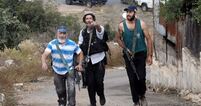
A horde of armed Jewish settlers on Monday afternoon assaulted Palestinian olive farmers in Kafr Qaddum, east of Qalqilya city in the occupied West Bank, and expelled
Local sources told a reporter for the Palestinian Information Center (PIC) that settlers working as security guards at the illegal settlement of Kedumim assaulted Palestinian farmers as they were collecting olives from a grove in Kafr Qaddum town and forced them to leave the area.
The sources added that the settlers also ordered the farmers not to enter their agricultural lands at the pretext they are located near the settlement.
Local sources told a reporter for the Palestinian Information Center (PIC) that settlers working as security guards at the illegal settlement of Kedumim assaulted Palestinian farmers as they were collecting olives from a grove in Kafr Qaddum town and forced them to leave the area.
The sources added that the settlers also ordered the farmers not to enter their agricultural lands at the pretext they are located near the settlement.
28 oct 2019
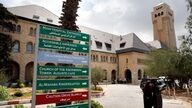
Augusta Victoria Hospital (AVH), in occupied Jerusalem, Sunday evening, launched a distress call entitled “The Future of AVH Hospital is in Danger,” which has reached a dead end, according to administration.
The hospital said, in a statement, that the Palestinian government did not transfer any funds to the hospital and refuses to pay its debts, which have now reached NIS 200 million.
Palestinian Prime Minister Mohammed Ishtayah said, Sunday afternoon, that the Ministry of Finance transferred NIS 20 million.
The director general of the hospital, Walid Namour, said that there were no medicines, and that the hospital is incapable of providing treatment services, calling for immediate funds to buy medicine.
Namour added that the NIS 20 million in question had not reached the hospital, and, even if it did, only constitutes only 10% of the debt.
Dozens of patients, especially cancer patients, some of them from Gaza, complained of the hospital’s refusal to treat them because of the debt crisis, and the lack of cancer drugs in the hospital.
He noted, according to Al Ray Palestinian Media Agency, that the pharmaceutical companies specializing in cancer treatment, and a number of other serious diseases, have stopped dealing with the hospital.
The hospital said, in a statement, that the Palestinian government did not transfer any funds to the hospital and refuses to pay its debts, which have now reached NIS 200 million.
Palestinian Prime Minister Mohammed Ishtayah said, Sunday afternoon, that the Ministry of Finance transferred NIS 20 million.
The director general of the hospital, Walid Namour, said that there were no medicines, and that the hospital is incapable of providing treatment services, calling for immediate funds to buy medicine.
Namour added that the NIS 20 million in question had not reached the hospital, and, even if it did, only constitutes only 10% of the debt.
Dozens of patients, especially cancer patients, some of them from Gaza, complained of the hospital’s refusal to treat them because of the debt crisis, and the lack of cancer drugs in the hospital.
He noted, according to Al Ray Palestinian Media Agency, that the pharmaceutical companies specializing in cancer treatment, and a number of other serious diseases, have stopped dealing with the hospital.
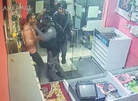
Israeli soldiers invaded, on Sunday evening, the town of al-‘Isawiya, in occupied East Jerusalem, before storming many stores, and forced them to close.
Media sources said the many army jeeps invaded the town, before the soldiers stopped and harassed many Palestinians, while inspecting their ID cards and searching them.
They added that the soldiers invaded many shops in the town, and attacked several shop owners, before forcing them to close and leave. video video
It worth mentioning that, on Sunday at dawn, the soldiers invaded and ransacked many homes in the town and abducted nine Palestinians.
The town has been subject to constant invasions, the violent searches of homes and stores, in addition to the abduction of dozens of its residents, high fines and fees imposed on the Palestinians, and the demolition of homes and property.
Media sources said the many army jeeps invaded the town, before the soldiers stopped and harassed many Palestinians, while inspecting their ID cards and searching them.
They added that the soldiers invaded many shops in the town, and attacked several shop owners, before forcing them to close and leave. video video
It worth mentioning that, on Sunday at dawn, the soldiers invaded and ransacked many homes in the town and abducted nine Palestinians.
The town has been subject to constant invasions, the violent searches of homes and stores, in addition to the abduction of dozens of its residents, high fines and fees imposed on the Palestinians, and the demolition of homes and property.
Page: 43 - 42 - 41 - 40 - 39 - 38 - 37 - 36 - 35 - 34 - 33 - 32 - 31 - 30 - 29 - 28 - 27 - 26 - 25 - 24 - 23 - 22
